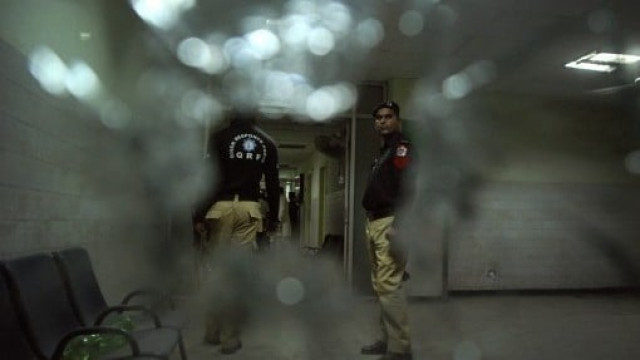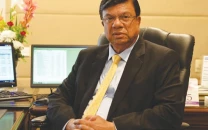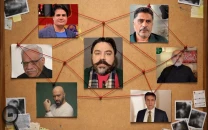Killing spree
In the violent melting pot that is Karachi, law enforcers need to be more proactive.

In the violent melting pot that is Karachi, law enforcers need to be more proactive. PHOTO: FILE
Given the violent protests in Bhakkar, the law-enforcement agencies should have made sure there were no fallouts to that conflict in Karachi. Nevertheless, the law enforcers failed to anticipate that local branches of these sectarian groups can target their rivals in the city and once again cause a bloodbath.
The killing spree began on August 24 when a Pakistan Sunni Tehreek sector in charge was kidnapped and later found dead. The next day, the Majlis-e-Wahdatul Muslimeen (MWM) and the Ahle Sunnat Wal Jamaat held separate protests to blame each other for the clashes in Bhakkar.
The MWM blamed the Punjab police for supporting banned outfits and the banned Sipah-e-Sahaba for orchestrating violence against Shias. Meanwhile, the ASWJ spokesperson, Maulana Abdul Saeed Farooqi, spoke vociferously against his rival group, accusing it of killing more than 400 of its activists. Soon after his speech, when he was returning from the protest, Farooqi was gunned down and died on his way to hospital.
In the violent melting pot that is Karachi, law enforcers need to be more proactive. They should have foreseen that the Bhakkar clashes would have consequences in other parts of the country and should have taken necessary steps to make sure things did not get out of hand. They could have, for example, not allowed the two groups to organise protests where their respective leaders made inflammatory statements.
What is interesting to note is that no other city in the country faced such severe consequences. The fact that so many diverse ethnicities, religious groups and sectarian minorities call this city home means there is an increasing number of hands trying to grasp the city’s resources. Here, it is not only individual men who head to Karachi with dreams of making it big, but it is also organised groups, such as political parties, trying to maximise their gains. In the end, violence in this city yields profits — both financial and political — for these ‘entrepreneurs’, and it is high time the government took action to make this unfeasible.
Published in The Express Tribune, August 27th, 2013.
Like Opinion & Editorial on Facebook, follow @ETOpEd on Twitter to receive all updates on all our daily pieces.














COMMENTS
Comments are moderated and generally will be posted if they are on-topic and not abusive.
For more information, please see our Comments FAQ